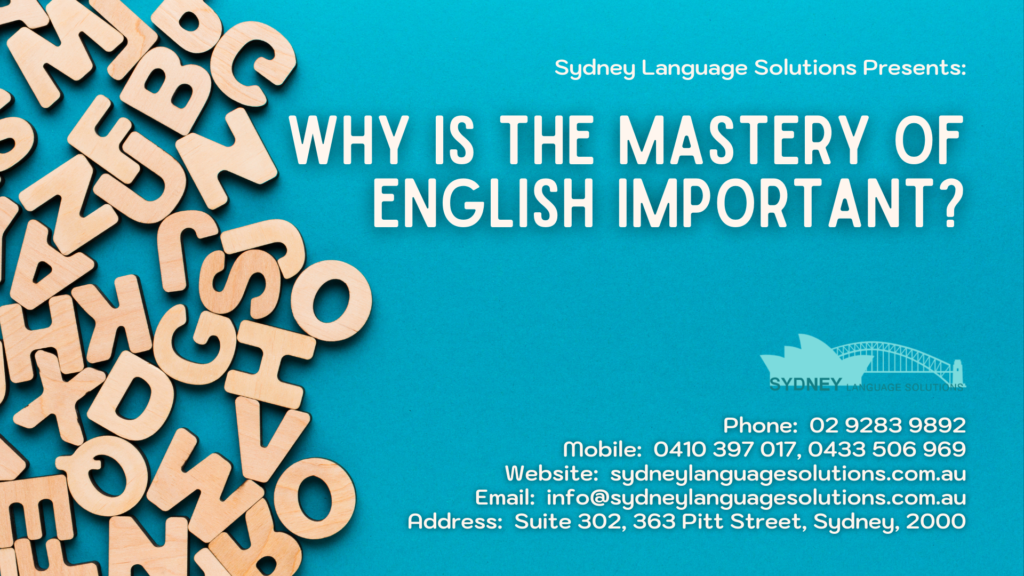Why is the Mastery of English Important?
Being the most commonly used language around the world, English is an essential skill for everyone – from students to professionals. This is particularly important in the workplace where you need to talk to clients, present your work to higher-ups, and communicate well with your colleagues.
If you want to be commended for your efforts and ensure that your point will be delivered across, you must have good communication skills and an excellent command of English. It will definitely boost your confidence if you are able to express yourself in a clear manner.
5 Tips on How to Reduce Your Accent to Sound Like a Native Speaker
Having an accent is not a bad thing; one should not be ashamed of it. A person’s accent represents his or her background and culture. Lots of people take pride in their accent as it reveals their cultural heritage. Even English native speakers have their own accents such as American-English, British-English or Australian-English. However, this sometimes causes difficulty in understanding so some people are embarrassed by their own accent in English Speaking. It turns out that having a residual accent might affect self-confidence in communication and interaction.
There are some techniques that non-native English speakers can use to reduce their accent in speaking.
- Slow down and clearly pronounce words
People tend to speak fast when they are excited or nervous. If you have an accent, try to speak slowly and clearly pronounce words so that everyone can understand what you want to say.
- Feel the rhythm while speaking English
English is considered “stressed language” as every single word have its own stress, differently on verbs, words and adjectives. Same to sentence. People said that sentence stress gives English a rhythm or beat.
- Listen and Talk to native speakers
Listen and repeat to sentences spoken by native speakers until you can naturally speak those sentences. Try to speak to the native speakers as many as possible. You need to overcome your in-confidence and speak to the native speakers. It might make you feel embarrassed at first but failure creates success. People also tend to imitate others whom they frequently interact with. Therefore, the more you talk to the native speakers, the more you could improve.
- Record yourself
Don’t learn from others only, learn from yourself. Take your time to record your speaking and listen again to identify your weaknesses. Recording will also make you proud of yourself in how clarity in your pronunciation has progressed.
- Take a class or tutor
Consider working with an experienced tutor or teacher to help you with pronunciation, intonation and even vocabulary. An ESL teacher will have his/her strategy to quickly help you with your accent. Joining a class might also motivate you as you have partners in your accent reduction journey.
English Pronunciation: Compound Adjectives
A compound adjective is a fixed expression which is made up of more than one word and which has the function of an adjective. Most compound adjectives are written with a hyphen, but a few are written as one word:
skin-deep long-term threadbare
The following types of compound adjective usually have main stress on the first part:
- compound adjectives usually written as one word
- ‘ airtight ‘ carefree ‘ praise , worthy
- Exceptions: , nation ‘ wide, , hand ‘ made
- noun + -ing form
- ‘ hair- , raising ‘ fee- , paying ‘ time-con,suming
- noun + past participle
- ‘ poverty- , stricken ‘ pear-shaped ‘ health-re,lated
- Exceptions: , eagle- ‘ eyed, , home- ‘ grown
The following types of compound adjective usually have main stress on the second part:
- noun + adjective
- , fat- ‘ free , sky- ‘ high , snow- ‘ white
- Exception: ‘ camera-shy
- adjective + noun
- , long – ‘ term , full – ‘ length , high – ‘ profile
- adverb or adjective + past participle
- , fully- ‘ grown , long- ‘ sighted , well – ‘ dressed
- adverb or adjective + -ing form
- , easy- ‘ going , hard – ‘ working , well – ‘ meaning
- Exceptions: ‘ backward – , look ing, ‘ forward- , looking
- self- as the first part
- , self- ‘ confident , self-in ‘ flicted , self- ‘ governing
Most compound adjectives with main stress on the second part can have stress shift. Compare:
- The tiger was fully-GROWN. but: It was a FULly-grown TIger.
- The prices were sky-HIGH. but: They were SKY-high PRIces.
5 Reasons Why Good English is Essential in Business!
English is the language of communication: English is the most widely spoken language in the world with over 1 billion people using it as a foreign language.
English spoken in business is different from English spoken in daily lives, as certain industries have certain vocabulary or jargon. For example, English vocabulary is different in business administration, finance, law or retail.
Mastery of English is beneficial even though you are working in your home country. Many businesses are international in scope and English is official language in the company.
Better job opportunities: if you work in English-speaking countries, English is a must. In non-English-speaking countries, it would be another skill that you can add to your resume and would boost your chances of job promotion.
More confidence in working: Business English with Sydney Language Solutions will improve your confidence in presentation, negotiation, conversation, better comprehension and pronunciation in Business context. All of these will boost your confidence in conducting Business in English.
10 Most Helpful Tips for Achieving a Better Band Score in Writing
- Read the questions very carefully. Often the question will ask you to do three or four different things, aside from the main question. Write them down and make sure you address all of them in your answer. The IELTS examiner will be checking for this.
- Practice writing tasks within the given time limits. It really doesn’t matter if you can write a beautiful answer in two hours. Always recreate the conditions of the exam as closely as possible, when doing any kind of practice exercises.
- Plan before you write. Even though you feel under pressure for time, spend the first few minutes planning your writing. Decide what you’re going to say and how you’ll expand on it. When you know what to write, you can concentrate on how to write it best. Experiment with the great variety of outlining and mind-mapping techniques to help you sketch out a plan quickly. I’d recommend allocating up to 5 minutes for planning your essay.
- Write in an organized way. When you’ve planned in advance, you’ll end up with a more organized, logical piece of writing, which will earn you higher marks. There are many ways to be organised – linear, circular, etc. – but in the end the final product must be cohesive which means that there must be a clear flow from the introduction through the body to the conclusion.
- Stay on topic. You will be penalised if you stray off topic. This is where the initial few minutes of planning can help you a great deal.
- Divide your writing into paragraphs. It is confusing to be faced with a block of writing, with no divisions. You wouldn’t expect to read a magazine article or book like this. Always divide your writing into paragraphs. Depending on the essay type, two or three paragraphs for the body of your essay.
- Write clearly. This is not the time or place to experiment with new vocabulary or idioms. Use simple, clear English to get your ideas across in a powerful way.
- Write legibly. Though marks are not granted or taken away for poor or messy writing, the examiner should be able to read what you have written without undue difficulty.
- Spell correctly. Yes, this does affect your score so avoid careless mistakes. A careless mistake is when you have spelt the same word in various ways in the same piece of writing or when you misspell a word which is already given in the exam topic and all you have to do is copy it correctly. That’s not okay. Watch for this when you’re practising and resolve to overcome it.
- Edit your essay. This part is often neglected by students, but it can end up paying out for you. Make sure you don’t just randomly review your essay. Understand your weaknesses and check specifically for them.
10 Tips on How to Approach The IELTS Reading
- It would be not advisable to read the whole passage before looking at the questions. We do not enough have time to read the whole passage unless your English is so good and you can read 300 or more words a minute.
- Go to the questions first in order to find key words.
- Look for synonyms, or words with the same meaning, in the passage.
- It is better to do the questions one by one. The most important thing to consider is that the answers to most questions within one set questions will follow the order of the information given in the text, so you will gradually read the whole passage anyway as you find the answers.
- Make sure that you fully understand the question which is especially important with TRUE/FALSE/YES/NO/Not Given questions, as in this question type a seemingly insignificant word may determine the final answer.
- Once you have identified key words from a question, read around that part of the text properly in order to understand it and get the right answer.
- IELTS designers paraphrase certain parts of the passage in order to create the question In other words, they pick up a word or phrase from the passage that they want to test you on, and they make a question using words which have a similar meaning.
- Another piece of advice, especially if you understand that you running out of time, is to do easy questions first. In case you got stuck with a difficult question skip it and move on.
- Many students get the wrong answer because they think too much! They worry about small differences in meaning. Don’t think too hard about small differences in meanings.
- The General Training reading test is a bit different to the Academic test. However, the techniques you need to use to find the answers are the same.







Latest Comments